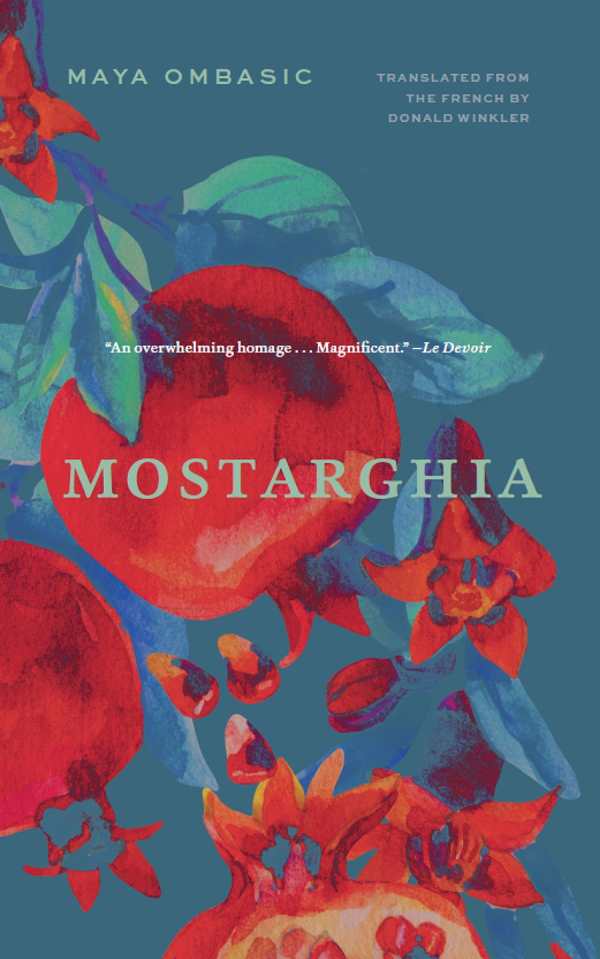Mostarghia
“Nietzche was right. It’s upon the death of those one loves that they become for us a shining star,” admits Maya Ombasic in her memoir, Mostarghia. Ombasic was twenty-seven years old when her father died—the same age he was when she was born. The intervening years contained the Bosnian War, the end of communism, exile, and the dissolution of Yugoslavia. As Ombasic’s father says, “All tragedies of peoples have their origins in family histories.”
As displacement and the war’s fallout embed instability into her family life, Ombasic struggles with the blessing and curse of her father. Many of his strengths exacerbate his weaknesses. Bohemian and patriarchal, his personality holds heaven and hell, containing moments of poetry and prophesy but also creating almost unbearable burdens for Ombasic and her mother. After her father dies, Ombasic seeks to resolve all that was unresolved between them in life. Her memoir ripples with the tension of these two great hearts each trying to shoulder an outsized burden.
The complex currents of Ombasic’s relationship with her father are haunted with larger tragedies and triumphs. Subtly and with lyricism, Ombasic unpacks her father’s role in her history alongside the role of their hometown, Mostar, not to mention the Balkans, religion, communism, war, displacement, and nostalgia. The memoir scrutinizes the complexity of identity and the way that labels and circumstances shift in-groups and out-groups, sometimes severing people from themselves. Her portmanteau—Mostarghia—embodies the fact that “It’s no simple matter for us to free ourselves from the Balkans and their timeless madness.”
“They say the war began on a different date for everyone,” but, as Mostarghia demonstrates, for some the war never ended; it only settled into a tideland of sorrow, with the past as an unbearably distant shore and the present full of endless questions about a time that would never come again.
Reviewed by
Letitia Montgomery-Rodgers
Disclosure: This article is not an endorsement, but a review. The publisher of this book provided free copies of the book to have their book reviewed by a professional reviewer. No fee was paid by the publisher for this review. Foreword Reviews only recommends books that we love. Foreword Magazine, Inc. is disclosing this in accordance with the Federal Trade Commission’s 16 CFR, Part 255.


